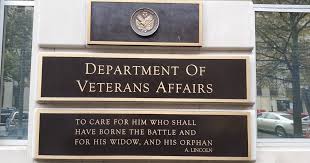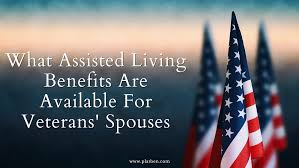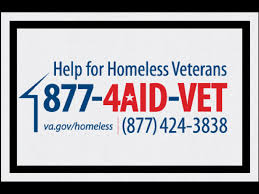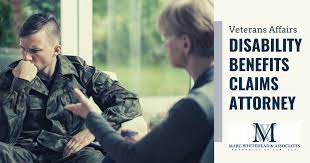Veterans Affairs is an important part of the United States government and is responsible for providing services to veterans of the U.S. Armed Forces. The Department of Veterans Affairs (VA) was established in 1930 and is dedicated to providing health care, benefits, education, and other services to veterans.
The VA provides a wide range of services, including medical care, disability compensation, pensions, home loans, education assistance, vocational rehabilitation and employment opportunities. The VA also provides mental health services such as counseling and therapy for veterans who have experienced trauma or stress related to their service in the military. Additionally, the VA offers financial assistance such as grants for housing or other needs for veterans who are unable to work due to disability or illness.
The VA also works with state and local governments to ensure that veterans receive the help they need from their communities. This includes providing job training and placement opportunities as well as providing housing assistance for homeless veterans. The VA also partners with other government agencies such as the Department of Housing and Urban Development (HUD), Department of Labor (DOL), and Social Security Administration (SSA) to provide additional benefits for veterans.
Veterans Affairs is an important part of our nation’s commitment to those who have served our country in the military. It is essential that we continue to support our veterans by ensuring they have access to quality health care, benefits, education opportunities, employment options and other resources they need in order to lead successful lives after their service has ended.
Eight tips regarding Veterans Affairs
- Take advantage of the free VA health care benefits available to veterans and their families.
- Apply for VA disability compensation if you have a service-related injury or illness.
- Utilize the Veterans Affairs Vocational Rehabilitation and Employment program to help transitioning from military to civilian life.
- Make sure you are aware of the GI Bill benefits available to veterans, including tuition assistance, vocational training, and job placement services.
- Take advantage of any veteran-specific programs offered by your state or local government such as tax exemptions, housing assistance, and employment opportunities for veterans in government jobs.
- Seek out resources provided by non-profit organizations such as the American Legion, Veterans of Foreign Wars (VFW), Disabled American Veterans (DAV), and Paralyzed Veterans of America (PVA).
- Stay connected with other veterans through online forums or support groups that can provide emotional support during difficult times in transition from military service to civilian life .
- Research educational opportunities available through universities or community colleges that offer discounted tuition rates for veterans and their families
Take advantage of the free VA health care benefits available to veterans and their families.
Veterans and their families have access to a variety of free health care benefits through the Department of Veterans Affairs (VA). These benefits include medical, mental health, and dental care, as well as prescription drug coverage. In addition, veterans and their families may be eligible for other services such as prosthetics, home health care, nursing home care, and more.
The VA provides a range of services to meet the needs of veterans and their families. From primary care to specialized treatment for post-traumatic stress disorder (PTSD) and other conditions, the VA can help ensure that veterans receive the best possible medical treatment. The VA also offers support services such as vocational rehabilitation and education assistance.
It is important for veterans to take advantage of these free health care benefits provided by the VA. Not only can they help ensure that veterans receive the best possible medical treatment, but they can also save money on out-of-pocket costs. Veterans should contact their local VA to learn more about what services are available to them.
Apply for VA disability compensation if you have a service-related injury or illness.
If you are a veteran of the United States military, you may be eligible for VA disability compensation if you have a service-related injury or illness. This compensation can help veterans who are dealing with physical or mental disabilities that were caused by their military service.
The VA offers disability compensation to veterans who have been injured or become ill due to their service. This includes injuries that were sustained during combat, as well as illnesses that were caused by exposure to hazardous materials or other conditions during active duty. The VA also offers disability compensation for certain medical conditions that may be related to a veteran’s time in the service, such as post-traumatic stress disorder (PTSD).
To apply for VA disability compensation, veterans must submit an application and provide supporting documentation such as medical records and other proof of their service-related injury or illness. The VA will review the application and make a determination based on the evidence provided. If approved, veterans can receive monthly payments to help cover expenses related to their disability.
Veterans should be aware that the amount of compensation they receive can vary depending on the severity of their disability and other factors. Additionally, there may be other benefits available to veterans with disabilities, such as educational assistance and vocational rehabilitation services. It is important for veterans to explore all available options when it comes to getting the support they need after leaving the military.
Utilize the Veterans Affairs Vocational Rehabilitation and Employment program to help transitioning from military to civilian life.
For veterans transitioning from military to civilian life, the Veterans Affairs Vocational Rehabilitation and Employment (VR&E) program can be an invaluable resource. This program provides comprehensive services to help veterans prepare for, find, and maintain suitable employment.
The VR&E program offers a variety of services to veterans, including career counseling and guidance, job-seeking skills training, job placement assistance, and vocational training. In addition to helping veterans find employment, the program also assists with obtaining necessary education or training for a successful transition into civilian life.
The VR&E program also provides financial assistance to help cover the costs of tuition, books, supplies, and other expenses related to education or training. Veterans may also be eligible for additional benefits such as housing allowances and transportation assistance.
For those who are interested in utilizing the VR&E program, it is important to contact your local VA office for more information about eligibility requirements and available services. With the right resources and support, veterans can successfully transition from military to civilian life with the help of the Veterans Affairs Vocational Rehabilitation and Employment program.
Make sure you are aware of the GI Bill benefits available to veterans, including tuition assistance, vocational training, and job placement services.
As a veteran, it is important to be aware of the GI Bill benefits available to you. The GI Bill provides tuition assistance, vocational training, and job placement services to veterans who have served in the United States Armed Forces.
Tuition assistance can be used to pay for college courses or other educational programs. This assistance can be used for both on-campus and online courses, as well as for apprenticeships and certifications. Vocational training is also available through the GI Bill, which can include programs such as welding, automotive repair, HVAC repair, and more.
The GI Bill also offers job placement services to help veterans find employment after they have completed their service. This includes resume writing assistance, job search resources, and career counseling services.
It is important for veterans to take advantage of the benefits offered by the GI Bill in order to maximize their potential for success after leaving the military. By taking advantage of these benefits, veterans can ensure that they are able to pursue their educational goals and find meaningful employment after their service ends.
Take advantage of any veteran-specific programs offered by your state or local government such as tax exemptions, housing assistance, and employment opportunities for veterans in government jobs.
As a veteran, it is important to take advantage of any veteran-specific programs offered by your state or local government. These programs can include tax exemptions, housing assistance, and employment opportunities for veterans in government jobs. Tax exemptions are a great way to save money on taxes and can help veterans keep more of their hard-earned money. Housing assistance can help veterans find affordable housing and provide them with the support they need while transitioning back into civilian life. Employment opportunities for veterans in government jobs provide an excellent option for veterans who are looking for stable employment with competitive salaries and benefits packages.
Veterans should take the time to research all of the veteran-specific programs available in their state or local government. By taking advantage of these programs, veterans can ensure that they have access to the resources they need to make a successful transition back into civilian life.
Seek out resources provided by non-profit organizations such as the American Legion, Veterans of Foreign Wars (VFW), Disabled American Veterans (DAV), and Paralyzed Veterans of America (PVA).
As a veteran, it is important to seek out resources that are available to you. Non-profit organizations such as the American Legion, Veterans of Foreign Wars (VFW), Disabled American Veterans (DAV), and Paralyzed Veterans of America (PVA) are dedicated to helping veterans find the assistance they need.
These organizations provide a variety of services, ranging from providing financial assistance and legal advice to connecting veterans with job opportunities and educational resources. Additionally, they can provide emotional support and connect veterans with other veterans in their area.
The American Legion is the largest veteran’s organization in the United States, with over 2 million members. The VFW is the second largest organization, with 1.6 million members. The DAV and PVA both specialize in helping disabled veterans access resources they need to live a successful life after service.
These organizations are committed to helping veterans access the resources they need to live a successful life after service. Whether you’re looking for financial assistance or emotional support, these organizations can help you find what you need. So don’t hesitate – seek out the resources provided by these non-profit organizations today!
Stay connected with other veterans through online forums or support groups that can provide emotional support during difficult times in transition from military service to civilian life .
The transition from military service to civilian life can be a difficult one for veterans. The change in lifestyle, the loss of camaraderie, and the challenge of finding a job can all be overwhelming. Fortunately, there are online forums and support groups that can provide emotional support during this time of transition.
Online forums allow veterans to connect with other veterans who are going through the same experience. Through these forums, veterans can share their stories and experiences, ask questions, and get advice from those who have gone through similar situations. This can help them to feel less alone in their transition.
Support groups are another great way for veterans to connect with others who understand what they are going through. These groups provide a safe space where veterans can share their feelings and experiences without judgement or criticism. They also offer guidance on how to cope with the challenges of transitioning into civilian life, such as finding a job or managing stress and anxiety.
By staying connected with other veterans through online forums and support groups, veterans can find emotional support during this difficult time in their lives. This connection can help them to feel less alone in their transition from military service to civilian life.
Research educational opportunities available through universities or community colleges that offer discounted tuition rates for veterans and their families
For veterans and their families, there are a variety of educational opportunities available through universities and community colleges that offer discounted tuition rates. Many universities and colleges across the country have programs specifically designed to support veterans, active-duty military personnel, and their families. These programs provide a range of services, including reduced tuition rates, financial aid assistance, and academic support.
The first step in researching educational opportunities for veterans is to contact the college or university’s Office of Veteran Services. This office can provide information on the specific benefits offered by each school and how to apply for them. Additionally, many schools have dedicated websites with information about their veteran services offerings.
Veterans may also be eligible for additional benefits from the federal government such as the GI Bill or Vocational Rehabilitation and Employment (VR&E). The GI Bill provides financial assistance for veterans who wish to pursue higher education or vocational training after their military service has ended. The VR&E program helps veterans with disabilities prepare for employment through job training and other services.
In addition to these government-sponsored benefits, there are also a variety of private organizations that offer scholarships specifically for veterans and their families. These scholarships can help offset some of the costs associated with attending college or university.
For more information on educational opportunities available to veterans and their families, it is important to do your research. Contacting your local college or university’s Office of Veteran Services is a great place to start as they can provide you with all the necessary information you need to make an informed decision about your educational future.




